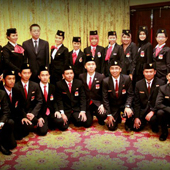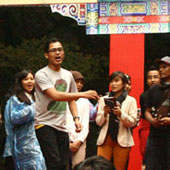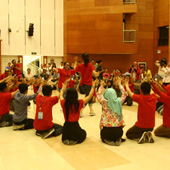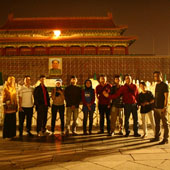-
China-Indonesia Youth Exchange Program is an exchange program operated under the agreement between Ministry of Youth and Sport of Indonesia and All China Youth Federation. This exchange program is considerably new as the first project was in the mid of 2011. Its purpose is to offer opportunities to the youth in enhancing the join cooperation and economic development between both sides.
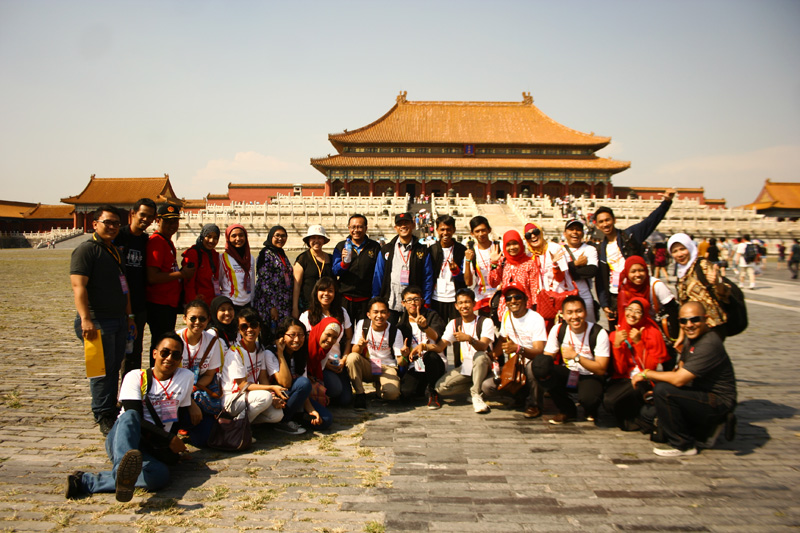
The participants will be travelling from city to city to conduct such activities as: courtesy call, introductory of China’s industrial system by visiting several small and medium enterprises, institutional visit, civic tours, and social-cultural interaction with local communities. Just in a short time, 14 days, the participants will realize the Chinese domination in world’s competitive games is surely not an overnight success.
-
In the traditional planned economic system, China adopted the policy of closing the country to the international world and the economy ran in a closed manner. China then started to open their economy to outside world in 1978, which was then followed by getting involved in GATT negotiations (1986) and WTO negotiations (1995), which symbolize faster integration of China with the world economy. Throughout the course of the integration, the advantages China enjoy by virtue of its huge amount and low cost of rural labor force have been fully developed, China has gained significant shares of international markets of low-end products through such channels as processing sector trade. During the internationalization, many young rural people have found non-farming jobs, increased their income and promoted growth of the economy. The internationalization is an important source of China’s economic growth, industrialization, urbanization and employment increase.
This economic growth then followed with the growing numbers of college graduates entering the job market. According to the Chinese government, China will have 195 million college-educated people by 2020. In response to these and other policy challenges, the Chinese leadership launched The National Medium- and Long-term Talent Development Plan (2010–2020), which is a blueprint for creating a highly skilled national work force in China. This plan is the first national comprehensive plan in China’s history of national human resources development and is of vital importance to China’s current and future development in the next decade and beyond. In Chinese, the plan refers to the development of rencai, which can be translated as educated and skilled individuals.
Some of the issues which are addressed in this Talent Development Plan include establishing National Talent Development Targets, prioritizing research and development (R&D) sectors, creating more business and entrepreneurial rencai, setting up special talent policy management and reform zones that will be compatible with the international practice of talent and human resources management systems, and also producing more liberal policies on foreign rencai and talent exchanges. These policies are translated into the enactment of China Indonesia Youth Exchange Program.
-
The All-China Youth Federation (ACYF) is a federative body of Chinese youth organizations and established in 1949. Through its 52 member organizations and over 77,000 individual members at all levels, the ACYF reaches over 300 million young people across China. Besides its commitment to national development and world peace, the ACYF aims to represent and protect the legitimate rights and interests of young people and promote youth participation and development. Former President of China, Hu Jintao and Jiang Zemin were both members of this federation.
ACYF runs programs and activities in the following fields: education and training, voluntary service, development of new countryside, environmental protection, protection of rights and interests, innovation and employment, youth culture, and international exchanges and cooperation. Due to its significant contributions to the youth and society, the ACYF was granted the Human Resources Development Award by UNESCAP in 1999, the World Youth Award by UN in 2000 and the Champion of the Earth by UNEP in 2004.

-
ChIYEP 2013
Niniek Pebriany Basri & Sobikhan Akhmad
The Indonesia China Youth Exchange Program (ChIYEP) 2013 was a great adventure for us. By joining this program I and the other Indonesian delegations were invited to explore the Chinese culture, art, history, trade and even their strategic plans toward decades ahead. On the very first day we were all taken into the China National Planning Exhibition Hall in Beijing which we could see their development from the era of dinasty to even 20 years ahead. Beside of visiting company and government office, we also visited museum and other Chinese icons such as Great wall, Forbidden City etc. Above all, we visited Anhui University where we could have a nice chat and share with the Chinese students. Here we got challenged by the Chinese students as well to perform accidental performances.
The Indonesian delegations were all selected youth from almost all Indonesian provinces, so it was such a great opportunity for us to show our talents. We sang, performed Taekwondo & Silat martial arts moves, danced, played piano, etc. The atmosphere at the Anhui Sports Hall at that time was really wonderful and hilarious. All in all in this ChIYEP we visited 3 big provinces of China which are; Beijing known as the city of government, Anhui the city of culture and Guangzhou the city of business. This program is categorized as short program (9 day program) because this program is only a one phase program which means the Indonesian delegations only runs the program in China (no Indonesian phase),
